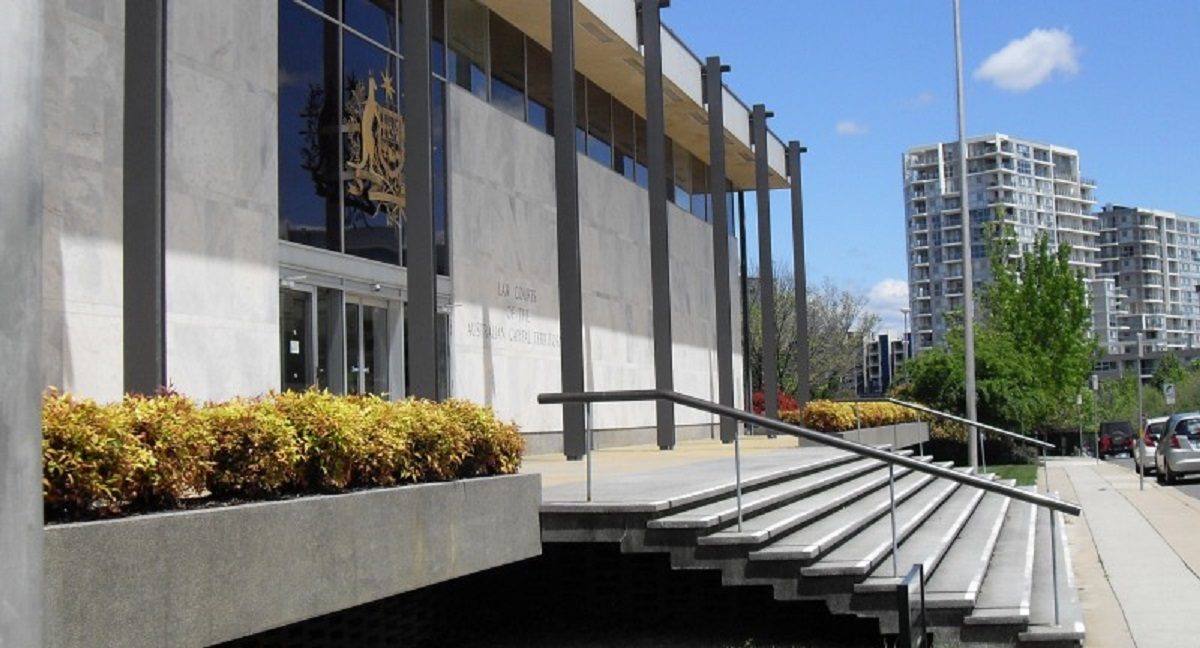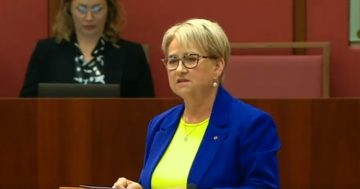
ACT Supreme Court. Photo: File.
What to do when an employed public servant colludes with a contractor to defraud a federal department?
Well, prosecute, obviously – if they’re caught, that is.
Two such conspirators were caught defrauding the Department of Finance in an elaborate yet simple scheme which, according to Justice Michael Elkaim of the ACT Supreme Court, “involved the infiltration and manipulation of a public organisation”.
As reported last week in Region, Abdul ‘Alex’ Aziz El-Debel and Raminder Singh Kahlon were sentenced after being found guilty earlier this year at the end of a lengthy jury trial.
They weren’t sent to jail, however, due to the “almost total speculation” on the effects of their crime and the extent of their gain.
Their convictions were confirmed and each was sentenced to three and a half years to be served as intensive community-based corrections orders, and community service.
El-Debel held a senior position in the department and advised evaluation panels making recommendations on the procurement of personnel for IT departments.
Kahlon was a contractor to the department and ran a company that put up subcontractors for IT projects.
The conspiracy was that El-Debel and Kahlon would select candidates that the company had put forward and they would gain a “commission” in the margin.
This was a high-profile case that lingered in the legal system, all the while feeding debate within the public sector and consultancy worlds about the use of contractors in the Australian Public Service (APS).
With the Albanese Government looking to drastically reduce the spend on consultants to the APS, this case might well be an example of why – when employed judiciously – consultants can well be a good thing for the public sector.
To make the point, let’s first examine the difference between consultants and contractors.
In this context, contracting equates to labour for hire. People employed to do the work that otherwise would be undertaken by APS employees.
That’s where it can get problematic, and where it did in this case.
The use of contractors in that department was so widespread that it ended up being a relatively easy target for corruption.
In his judgement, Justice Elkaim stated: “Mr El-Debel, in discussions with the authors of the pre-sentence report, has maintained his innocence. He said that his actions had actually reduced expenses for the Commonwealth. He felt ‘you should be praised for making decisions as a Director of Finance for saving costs to taxpayers’. He may be right. Unfortunately, he did it in the wrong way and, even if to an unknown extent, to his own benefit.”
When contractors become part of the furniture, a very different dynamic is created to when a consultant is engaged to give advice.
A wise use of consultancy firms is to seek expert advice, not bums on seats.
A good consultancy agreement would see a firm observe what needs to be done in an agency and then help that agency go about doing it.
It’s not to provide bodies for 52 weeks of the year.
The work of the public service should be done by public servants, not wholesale contractors.
Consultants have an important and unique role to play – and that role is consulting, not contracting out bodies.
The consultancy market is about to get knocked about as Labor takes a long, hard look at the spend and what the sector is providing the APS.
True consultancy firms that offer independent strategic advice, provide assurance and help solve problems will and should remain vital to the public sector, just like they are in the private sector.
But consultancy firms that seek to install pseudo staff and a workforce of contractors should be the first to go, and make way for more actual public servants to be employed.
A good consultant can be valuable to the public sector, while hundreds and thousands of contractors will inevitably lead to trouble – and possibly more cases such as what has just played out in Finance and the courts.
Original Article published by Chris Johnson on Riotact.











